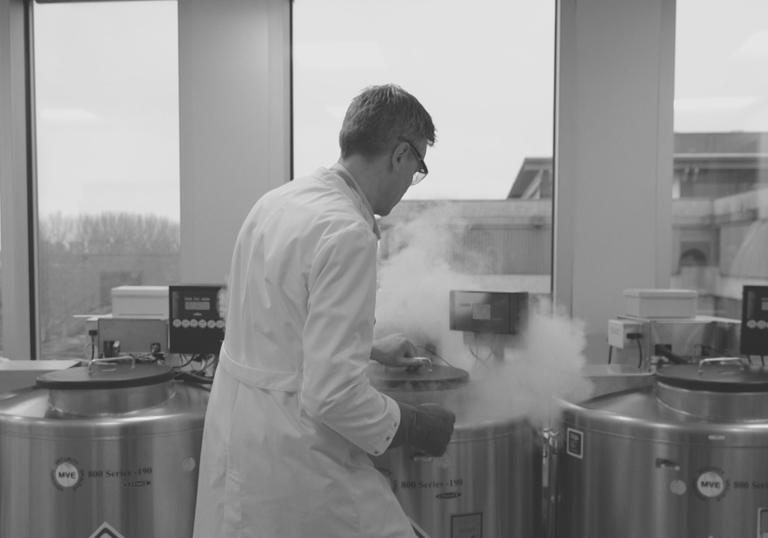Can you introduce your film, ‘The Children of Tomorrow’?
Since the first IVF baby was born in 1978, reproductive medicine has advanced vastly. But as much as these innovations are hugely beneficial to the field of human reproduction, the proper research must also be done so that they are applied safely and effectively.
Experts in the field, Dr. Sebastiaan Mastenbroek, Clinical Embryologist & Researcher at the University of Amsterdam, and Eline Dancet, PhD Researcher of the Research Foundation Flanders, introduce us to some of these innovations such as artificial uteruses, artificial gametes and gene editing. Some of these are a long way off from becoming a reality while others are closer than we actually think.
Although arguably controversial, what if we were able to prevent genetic diseases in children or make people resistant to HIV? As Eline puts it, the acceptance in the general public is quite high when it comes to these innovations but the majority do want a form of regulation to ensure safe and effective implementation.
It’s a great time to be an embryologist these days, because we have so many exciting developments in our field going on with a lot of promise for the future of what we can offer our patients
Dr. Sebastiaan Mastenbroek, Clinical Embryologist & Researcher at the University of Amsterdam
How does your film respond to the ideas behind Life Rewired?
The Children of Tomorrow reveals upcoming innovations in reproductive medicine exploring how the potential of these could impact the way we perceive reproduction and ultimately human life. Delving into the safety and effectiveness of these upcoming technologies, we consider the benefits these can afford humanity.
Can you explain the process behind the making of your film?
Researching, unpacking and making scientific work digestible is always a challenge. At The Doc Collective we’ve had a long standing interest in reproductive medicine. Last year we produced a short documentary series on fertility preservation The Mañana Generation - a concept coined by Karl Djerassi referring to a generation that around 2050 would only use sex for recreation exclusively separate from reproduction. Building upon this series, The Children of Tomorrow further explores the landscape of reproductive medicine, taking this idea further.
In 2015, we met Saskia Hendricks, at that time a PHD student in reproductive medicine at the University of Amsterdam. Saskia, alongside other researchers like Eline Dancet (featured in our documentary), had written an article called 'From Assisted to Artificial Reproduction'. The article was a summary about the current innovations being developed in reproductive medicine and all the many potential advantages these could bring to society. We were fascinated by the paper and were inspired to make a short documentary about these innovations. We fundamentally believe it’s important that people are informed about these innovations in reproductive health and are part of the conversation when considering the changes and impacts that they'll bring to humanity.
For The Children of Tomorrow, Saskia put us in touch with her former co-workers at the University of Amsterdam, experts in the field. In spite of the difficulties when working with a complex subject, at times alien and unarguably controversial, we forged a narrative that (we hope) entertains and educates our audience on some of the innovations coming in reproductive medicine, that can change many lives. At The Doc Collective, we have tried to remain objective and informative, mere observers, with no judgement allowing an insight into this world.
What does the filmmaker of the future look like?
Nowadays, access to technology is easier than ever. That is why, at The Doc Collective, we think that the filmmaker of the future should have two main skills: a good eye for story and the ability to tell these stories in an appealing and creative way - both entertaining and didactic. Digital technology has made filming video easier and more accessible than ever, so we understand the challenge and importance of creative storytelling, in a world where audiences are more than ever inundated with quality content.
There is a lot going on in terms of formats and new platforms that the filmmaker of the future should be aware of. The filmmaker of the future has to meet and adapt to these changes in technologies, and formats, using these technologies as creative constraints.

